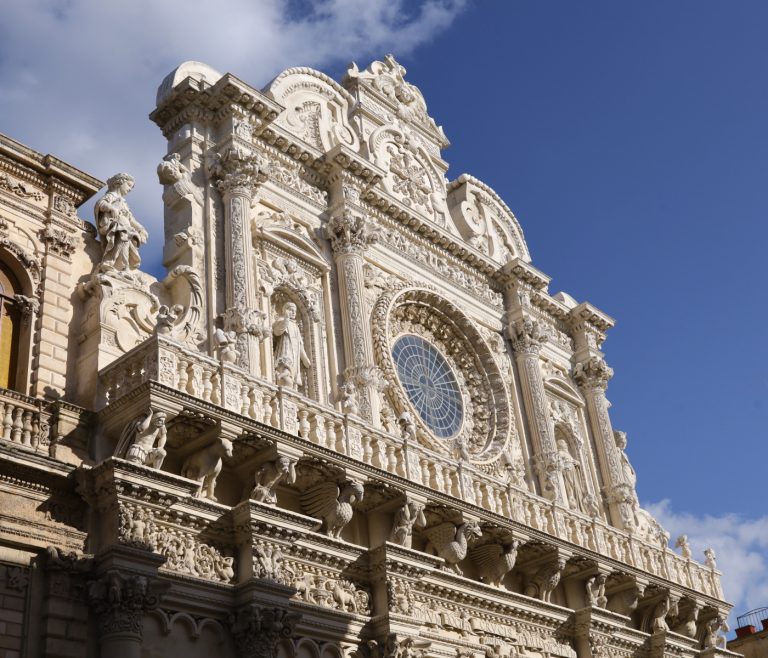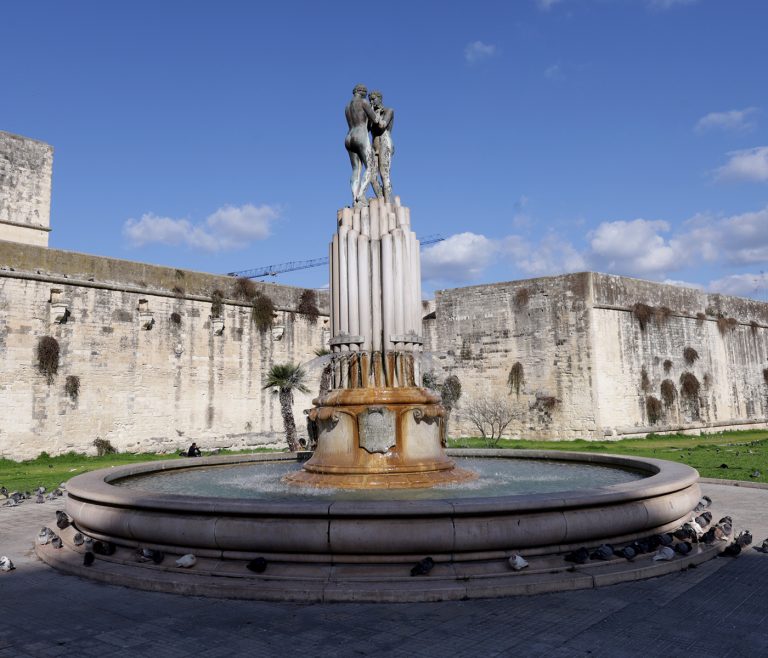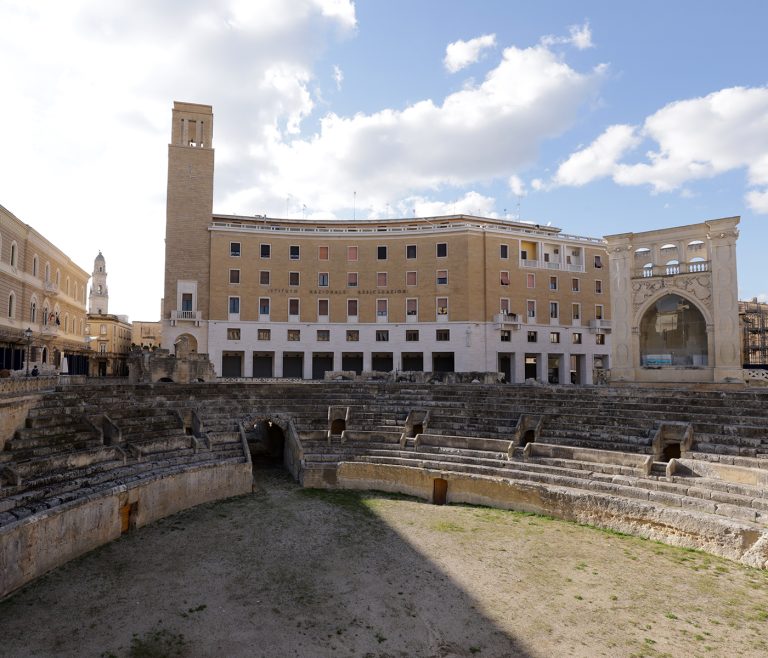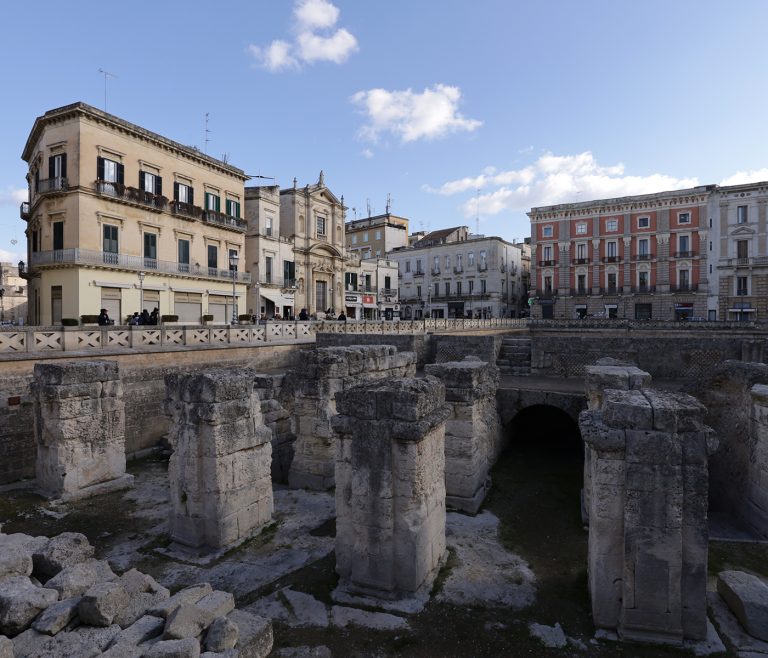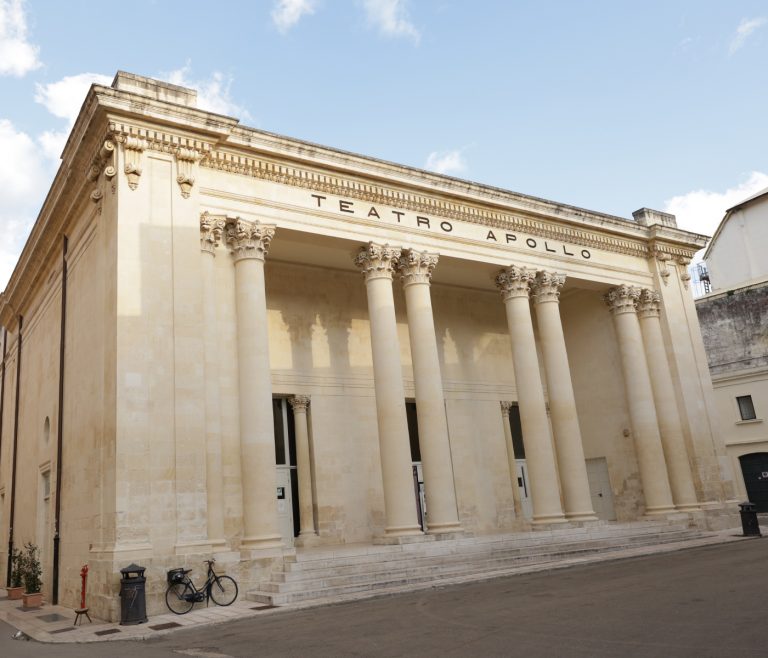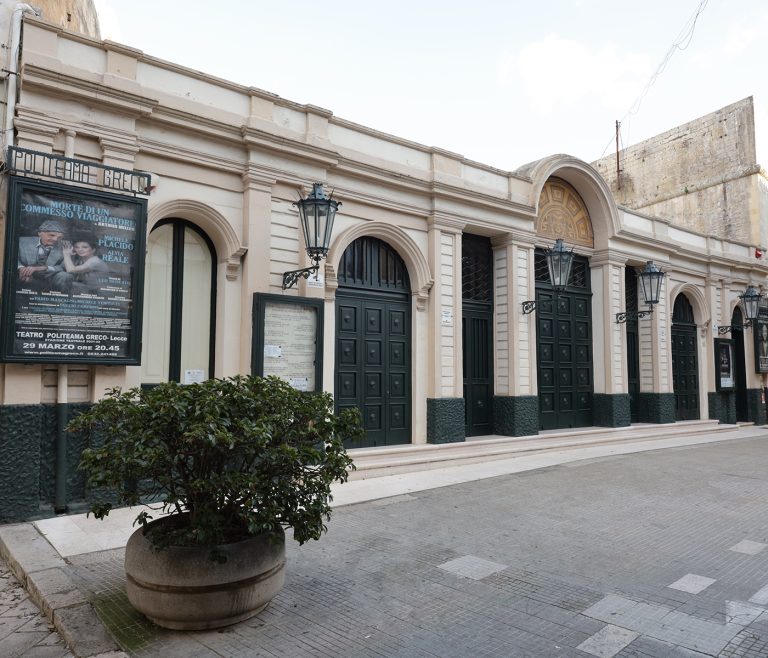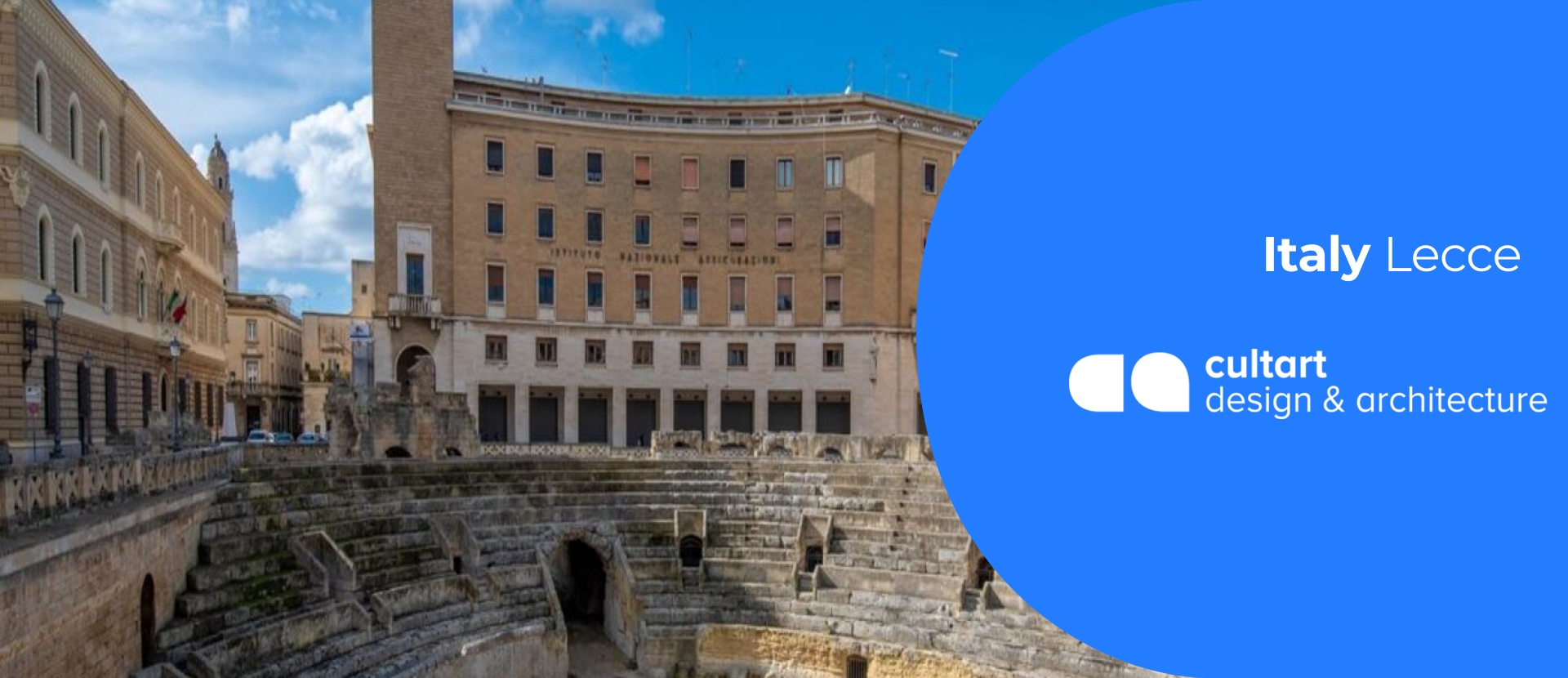
#discoverdesign

Design & Architecture Programme
Preserve the architectural heritage and experience the majestic buildings and historic monuments of Lecce. Get lost and discover the unique design of Lecce.
During the Cultart programme of management in Design & Architecture the international groups of 25 young cultural managers will meet up to 10 key speakers, experts and practitioners, who will mentor the 10 specified modules of the Cultart programme – Cultural Innovations, Business & Entrepreneurship, Management & Administration, Project Development, Fundraising, Leadership, Conflict Management, Media & Communication.
What is essential to the Cultart programmes is the Cultart Case Study Challenge when the group will have the chance to participate in the real working process of a cultural organization in the field of design & architecture in Lecce. The Case Study Organization will outline its main tools and models, the current work and projects, and will give a specific ‘challenge’ to the group. The Case Study Challenge is the final exercise where the group can present its new skills of giving cultural management solutions.
Manage locally, art globally
Overview of the situation in the creative and cultural sectors in Italy during the Covid-19
In Italy, the crisis caused by the pandemic affected all productive sectors in 2020, although with different intensities between sectors. The cultural sector was one of the most affected economic sectors, which includes activities related to cultural, entertainment and leisure and other services saw a contraction in value added of 14.6% (source: Istat). The share of cultural and entertainment enterprises with a serious risk of closure was over 60% in 2020 (source: Istat). All cultural activities are affected by the decrease, in particular theatre performances (-4.6 percentage points compared to 2019) and visits to museums and exhibitions (-4.5 percentage points).
In 2020, state-owned museums recorded just over 13 million admissions, a decrease of over 41 million admissions compared to 2019 (-75 per cent), due to museum closures because of the pandemic and in the reopening phase to visitor quotas to comply with anti-Covid regulations. In 2020, there were 479 museums, monuments and archaeological sites open to the public in Italy, and the number of visitors fell by more than 41 million, from almost 55 million in 2019 to just over 13 million in 2020.
The Italian Government has launched extraordinary measures to provide economic and financial support to operators in the arts sector. Article 89 of the “Decreto Cura Italia” (Decree Law no. 18 of 17 March 2020) – Emergency Fund for Entertainment, Cinema and Audiovisual – establishes two funds with a total endowment of 335 million euro for the year 2020. Subsequently, Article 183 of the Relaunch Decree further increases the Funds for emergencies in the performing arts and cinema and audiovisual sectors. The health emergency and the lockdowns and restrictions that closed museums and other cultural activities throughout Italy and then, in the periods when museums reopened, the restriction of visitor access to comply with anti-Covid security regulations, resulted in a 75 per cent drop in attendance compared to 2019.
Another sector that has suffered a drastic contraction in supply and demand as result of pandemic closures and restrictions is the audiovisual sector. In 2020, the number of live theatre, cinema and concert performances fell sharply compared to 2019.
However, this has not stopped Italians from enjoying cultural products. After an initial moment of bewilderment, Italians have experimented with new ways of attending shows and concerts. In particular, it was found that since the start of the pandemic, 33% have followed social networks in which famous musicians and singers performed from their homes, 13% have virtually visited exhibitions, museums and archaeological sites, 6% have watched streaming theatre shows and 4% have attended virtual concerts directly from their PCs, paying for a ticket. The lockdown initially disoriented, especially the regular users: the live experience of cultural events and activities was very much missed. At the same time, however, the lockdown stimulated and imposed choices and strategies to compensate for the lack of live attendance, which turned out to be satisfactory.
Digital has therefore played a key role in cultural fruition during the lockdown: it has added new ways of fruition, filled a gap and widened the audience, allowing new, less experienced users to approach the world of culture and show interest in the sector.
For new users of the sector, the lockdown was a moment of experimentation and discovery, an opportunity that made the enjoyment of culture simpler and more accessible, and a familiar sharing, capable of bringing younger people closer to culture. But if for the new audience, the lockdown was a moment of experimentation and discovery, for the regular users the lockdown was a moment of intense dissatisfaction.
You can read the fill report with the statistics here: Report Italy
Team Lecce
The CNA – National Confederation of Crafts and Small and Medium Enterprises – of Lecce is one of the largest associations in the South. CNA is the national general system and unified representation of small businesses, their entrepreneurs, small and medium-sized enterprises, and their associated forms. The CNA formulates strategies for the artisan sector and SMEs, recognizing the centrality of the market in a modern economic system where the quality, identity, and values of artisan entrepreneurship, are affirmed in a modern culture of know-how. It also has experience with the development of ICT-based learning solutions concerning youth unemployment: with a new pedagogical model that focuses on the labor, crafts, and entrepreneurship, and forms of learning related to it.

